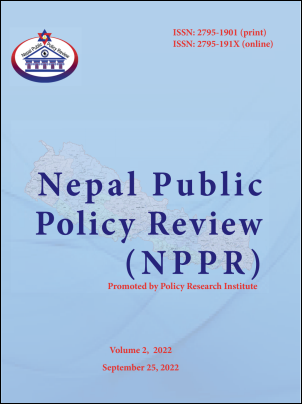Assessment of Environmental Policies and Institutions for Effective Air Quality Management in Nepal
Keywords:
Air pollution, Clean air, Najam's 5C Framework, Policy AnalysisAbstract
Air pollution is a serious environmental threat in major cities of Nepal. The major emission source of air pollutants is vehicular emission, resuspension of street dust litter during dry climatic conditions, black smoke plumes from brick kilns, and refuse burning. Effective plans and policies are required for the effective management and monitoring of air pollution. This study aims to review environmental policies and plans prevalent in Nepal and assess their effectiveness in controlling air pollution. The study is based on the literature review and a questionnaire survey using Najam's 5C framework for policy analysis. Although several national policies, plans, laws and standards have been formulated and international agreements have been ratified for the management of air pollution, separate policy dedicated to air pollution management has not been formulated in Nepal. According to Najam's framework, the content, context, and commitment of the overall policies, plans, and agreements for managing air quality in Nepal were assessed as effective. However, the capacity of the implementor, client support, and management coordination was found ineffective. This study recommends that a separate policy on air quality management is required, while the capacities of stakeholders and coordination mechanisms should be strengthened to improve the country's air quality.
Downloads
Downloads
Published
How to Cite
Issue
Section
License
Copyright (c) 2022 Raju Chauhan, Archana Shrestha

This work is licensed under a Creative Commons Attribution-NonCommercial 4.0 International License.





